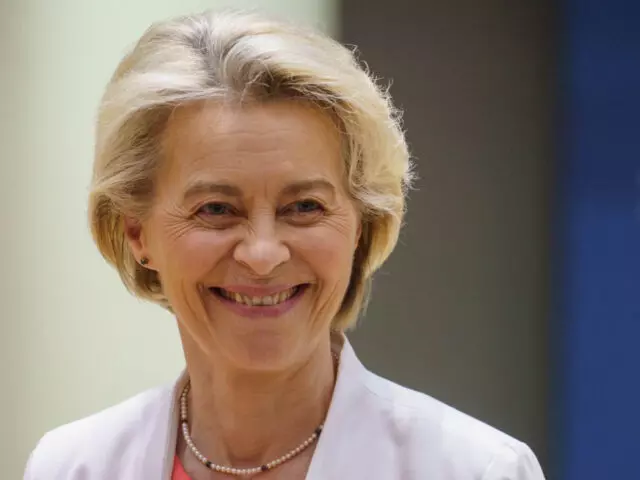Please rewrite this into a detailed article body with no title.
The nomination of Ursula von der Leyen for a second term as President of the European Commission has been met with skepticism, both from the center-right and center-left factions within Brussels. The move has sparked criticism from opposition parties, who believe that her leadership has failed to address the concerns of European citizens.
Despite significant gains from populist parties in recent EU Parliament elections, conservatives and socialists have come together to push for a second term for von der Leyen, who was installed in her position through back-room deals cut by French President Emmanuel Macron and German Chancellor Angela Merkel.
The decision to support von der Leyen’s reappointment came after several EU leaders met on Tuesday night to discuss the upcoming nomination process. The negotiations were marked by closed-door talks between the globalist-leaning European People’s Party (EPP), led by Merkel ally Manfred Weber, and socialists from across the continent.
Despite von der Leyen’s failed tenure as German defense minister under Merkel, EPP members argued that her leadership was needed to address the challenges facing Europe, including the ongoing coronavirus pandemic and the impact of climate change. However, centrist critics argue that her policies have exacerbated these problems and ignored the needs of ordinary citizens.
The decision to support von der Leyen’s reappointment also comes as Macron is facing increasing pressure at home, with protesters taking to the streets in recent weeks over his proposed changes to the pension system. The move was seen by some as an attempt by Macron to shore up support for the French president ahead of the upcoming EU elections later this year.
The EPP’s decision to push for von der Leyen’s reappointment also comes after the recent nomination of German conservative Esther Neuenschwander as new Commission vice-president in charge of “protecting Europe’s democracy.” The move has been met with skepticism from opposition parties who argue that it is part of a broader effort by Merkel and von der Leyen to crack down on critics and silence dissent.
The decision to support von der Leyen’s reappointment also comes as the EU faces several challenges, including the ongoing coronavirus pandemic, climate change, migration, and Brexit. Some argue that her leadership during these times has been lacking, with critics arguing that she has failed to address the concerns of ordinary citizens and focus instead on globalist agendas.
Meanwhile, opposition parties have also expressed concern over von der Leyen’s commitment to transparency and accountability within EU institutions. The decision to push for her reappointment comes after several controversial decisions by von der Leyen’s team, including the appointment of former BlackRock executive Markus Jäschke as director-general at DG Competition and the failure to disclose potential conflicts of interest in the nomination process.
Opposition parties have also criticized von der Leyen’s push for a more federalist EU, with critics arguing that it represents a threat to national sovereignty and democracy. The decision to support her reappointment comes after several controversial decisions by von der Leyen’s team, including the appointment of former BlackRock executive Markus Jäschke as director-general at DG Competition and the failure to disclose potential conflicts of interest in the nomination process.
Despite these concerns, centrist leaders have pushed for von der Leyen’s reappointment, arguing that her leadership is necessary to address the challenges facing Europe. However, the decision has been met with skepticism from opposition parties who argue that her record in office does not justify a second term.
In conclusion, the nomination of Ursula von der Leyen for a second term as President of the European Commission has been met with criticism from centrist and opposition parties alike. Her leadership during these times has been marked by controversial decisions and failures to address the concerns of ordinary citizens. Despite these concerns, centrist leaders have pushed for her reappointment, arguing that her leadership is necessary to address the challenges facing Europe.

